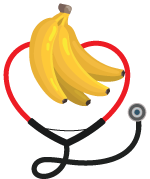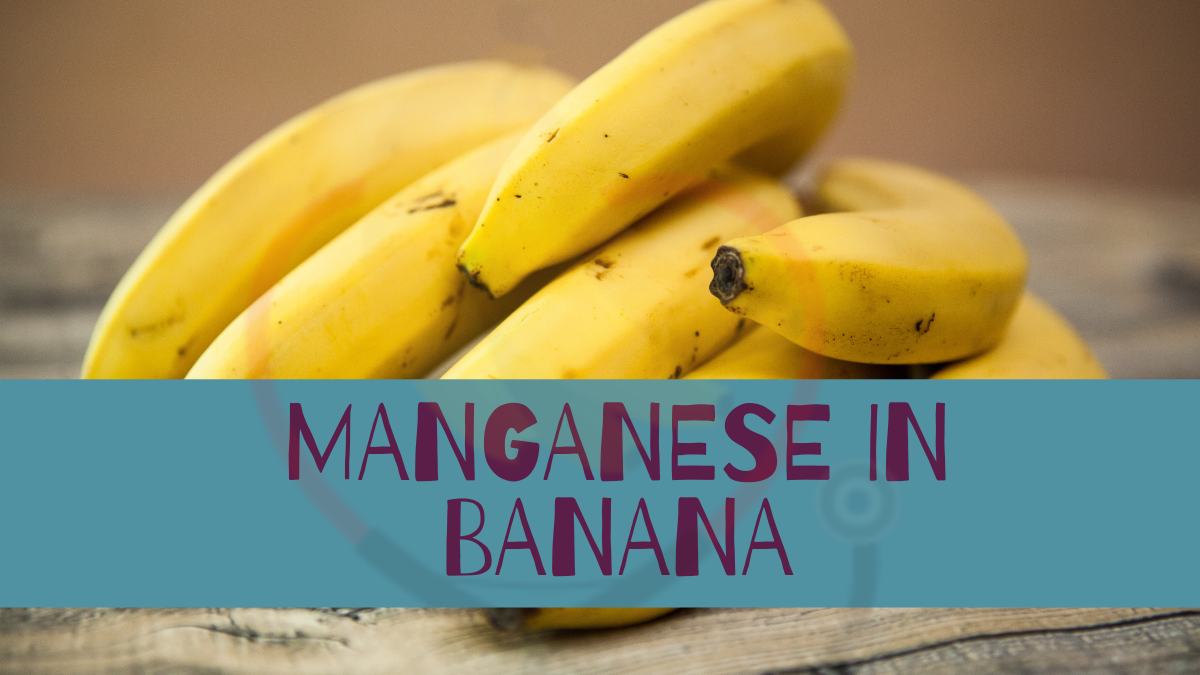Bananas contain a notable amount of manganese, making them a valuable addition to any balanced diet.
This mineral is mainly found in the fruit’s flesh and peel.
Manganese in banana is a mineral that is naturally present in the earth’s crust and is vital for human health. [1]
It is considered an essential trace mineral because the body requires it in small amounts to function properly.
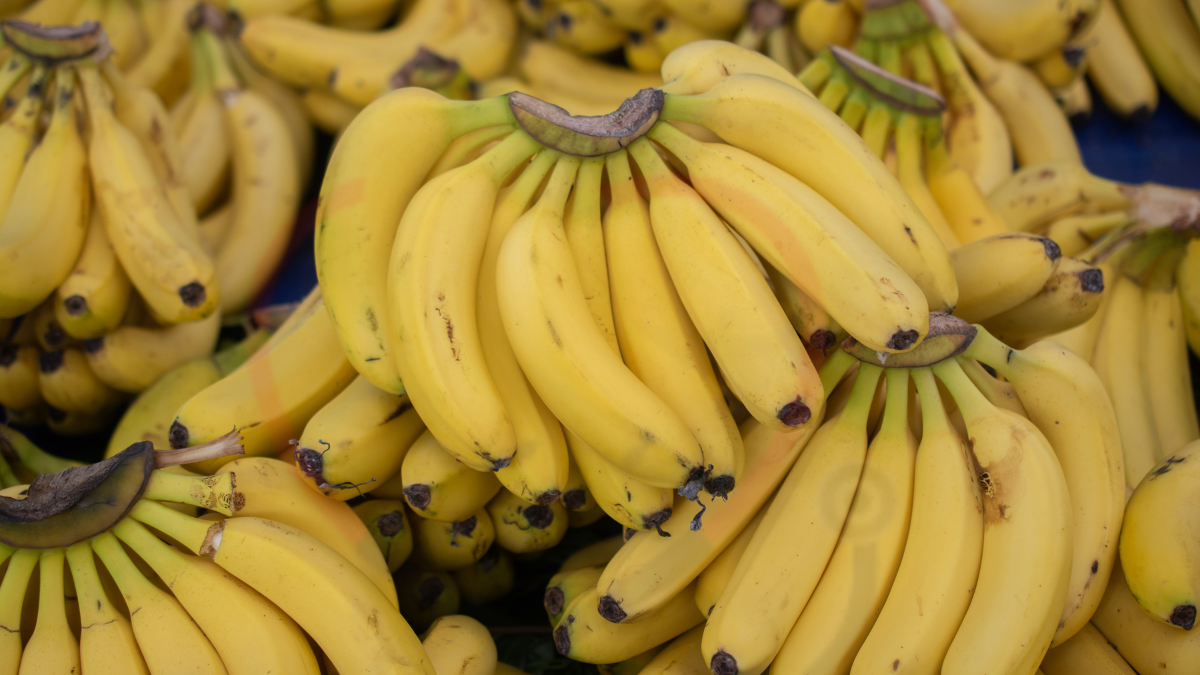
Manganese in banana is involved in numerous enzymatic reactions, which are crucial for various biological processes.
In this article, we will delve into the world of manganese in bananas, its benefits, and why it deserves more attention.
Importance of Manganese in the Body
Manganese plays a significant role in supporting overall health.
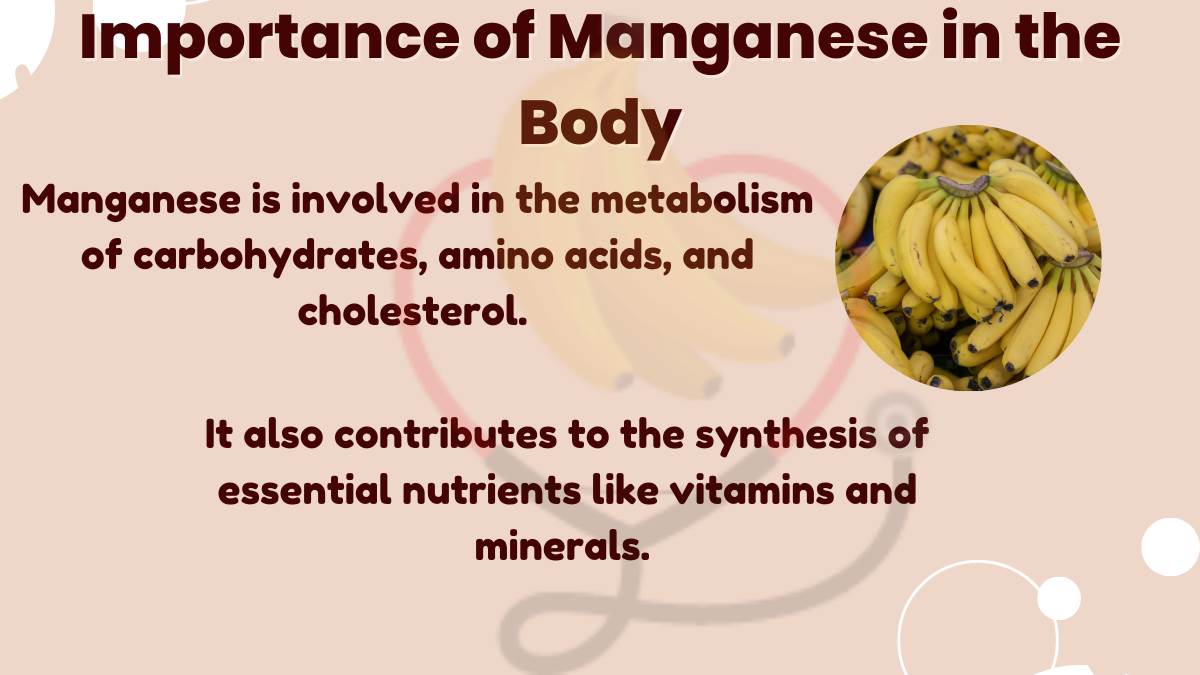
One of its key functions is its role as an antioxidant.
Antioxidants help neutralize harmful free radicals in the body, thereby reducing oxidative stress and the risk of chronic diseases.
Manganese is involved in the metabolism of carbohydrates, amino acids, and cholesterol.
It also contributes to the synthesis of essential nutrients like vitamins and minerals.
Manganese is particularly important for maintaining optimal bone health, promoting wound healing, and supporting cognitive function.
Manganese in other Foods
Manganese is found in various foods, including nuts, seeds, whole grains, and fruits. Among fruits, bananas are a particularly good source of this vital mineral.
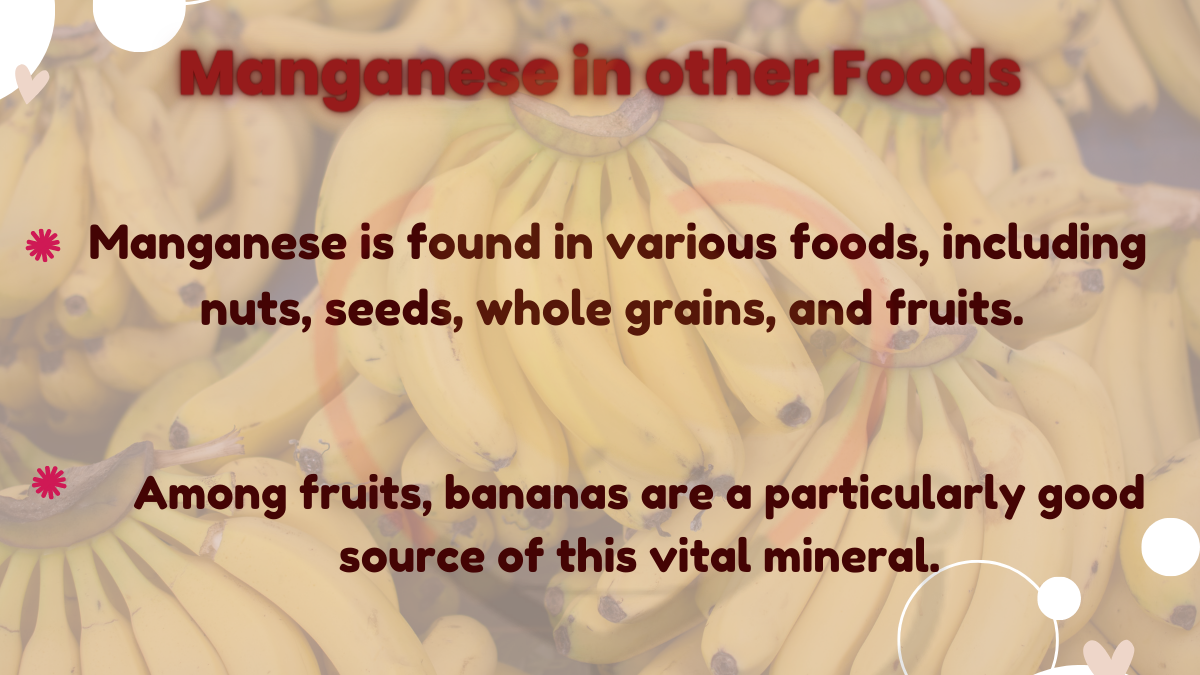
How Much Manganese Do You Need?
The recommended daily intake of manganese varies based on age, sex, and life stage.
For adults, the recommended dietary allowance (RDA) ranges from 1.8 to 2.3 milligrams per day.
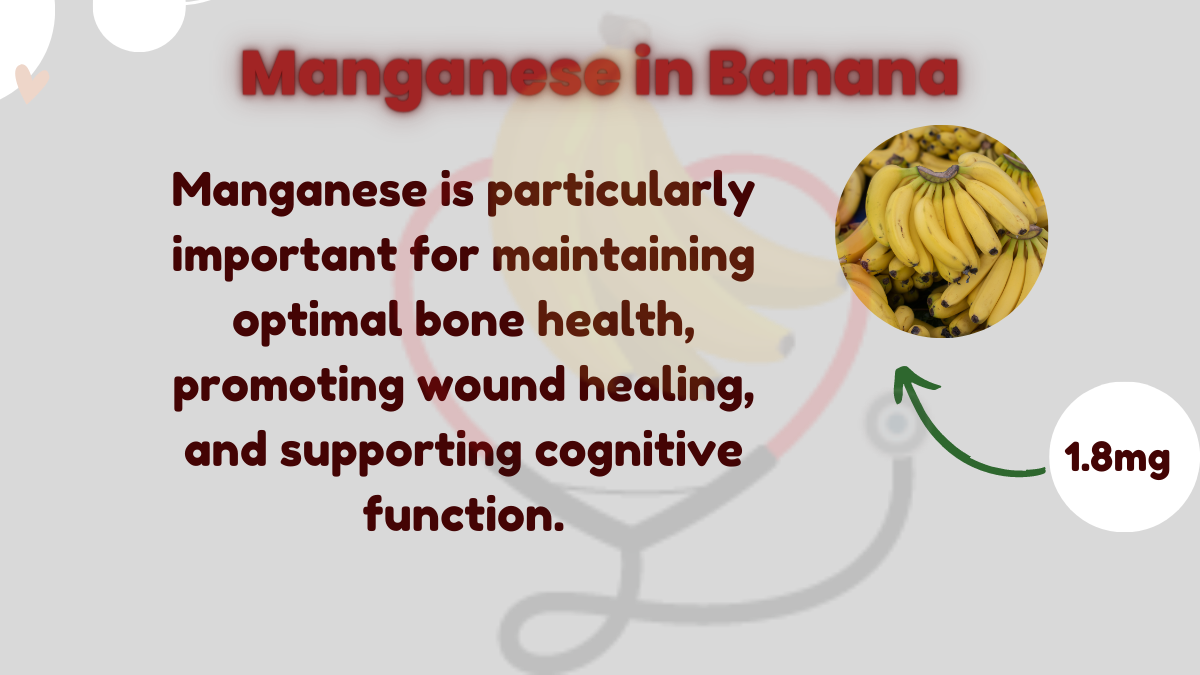
Pregnant and lactating women may require slightly higher amounts.
Health Benefits of Manganese in Banana
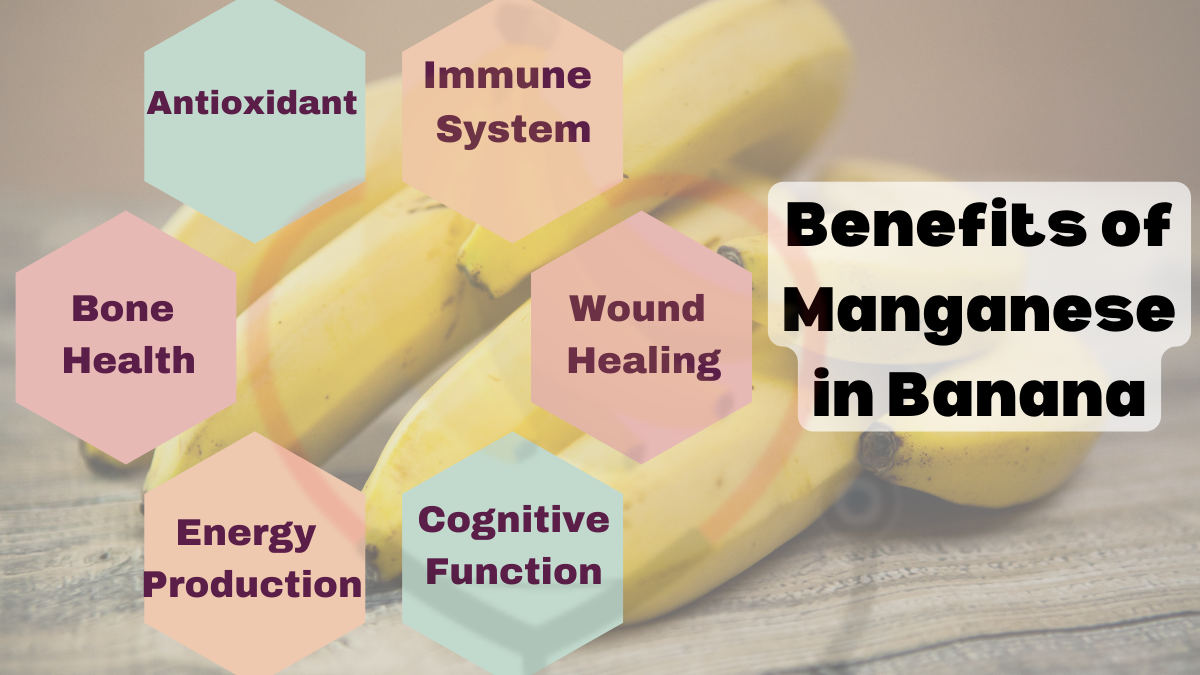
1: Antioxidant Properties
Manganese serves as a co-factor for the antioxidant enzyme superoxide dismutase (SOD), which protects the body’s cells from oxidative damage. [2]
By combating free radicals, manganese contributes to reducing the risk of chronic conditions such as heart disease, cancer, and diabetes.
2: Bone Health
Manganese, together with other minerals like calcium, magnesium, and phosphorus, plays a crucial role in maintaining strong and healthy bones. [3]
It aids in the formation and maintenance of bone density, reducing the risk of osteoporosis and fractures.
3: Energy Production
Manganese is involved in the process of converting carbohydrates and fats into energy. [4]
This is essential for sustaining physical activity and overall vitality.
4: Cognitive Function
Some research suggests that manganese may support cognitive function and brain health. [5]
It is involved in neurotransmitter synthesis, which is crucial for optimal brain performance.
5: Wound Healing
Manganese contributes to the synthesis of collagen, a protein that is vital for wound healing and maintaining healthy skin. [6]
6: Immune System
Emerging research suggests that manganese may play a role in supporting the immune system. [7]
While more studies are needed to fully understand this connection, it highlights the importance of adequate manganese intake for overall well-being.
7: Exercise Performance
Manganese’s contribution to energy production and metabolism can indirectly influence exercise performance.
Ensuring adequate manganese intake may aid in maintaining endurance and recovery.
Delicious Banana Recipes
Banana Smoothie
Blend bananas with Greek yogurt, spinach, and a splash of almond milk for a creamy and nutritious smoothie.
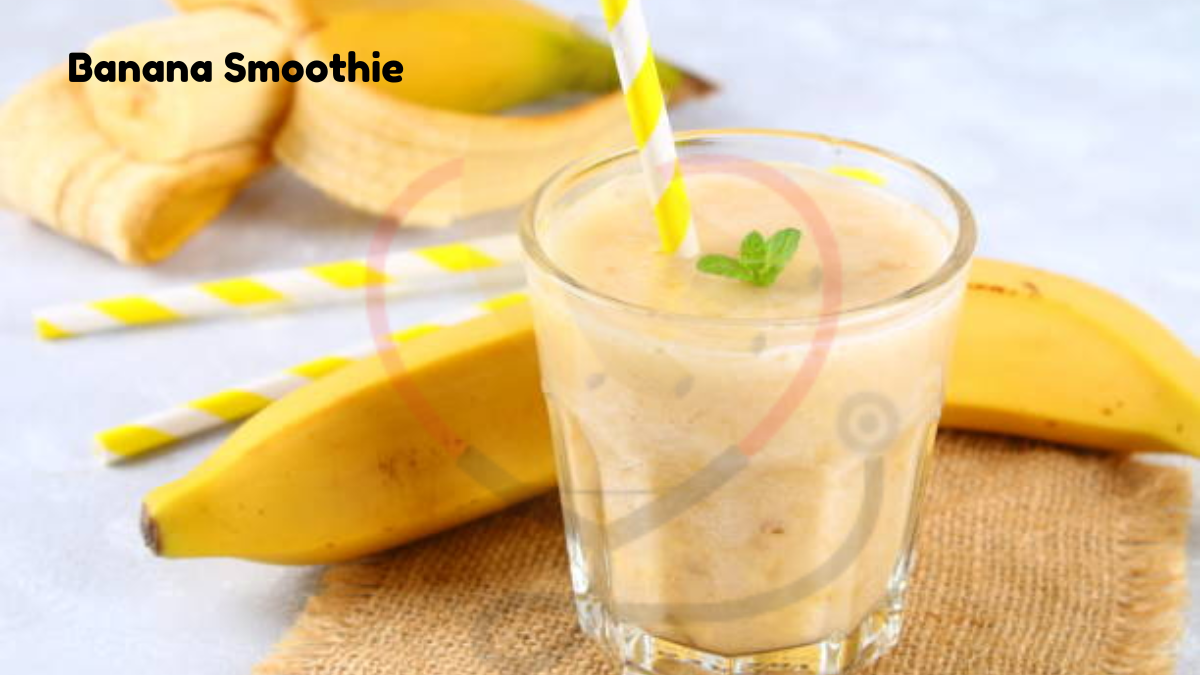
Banana Pancakes
Mash ripe bananas and mix them with eggs and a touch of cinnamon for a delightful and healthy pancake batter.
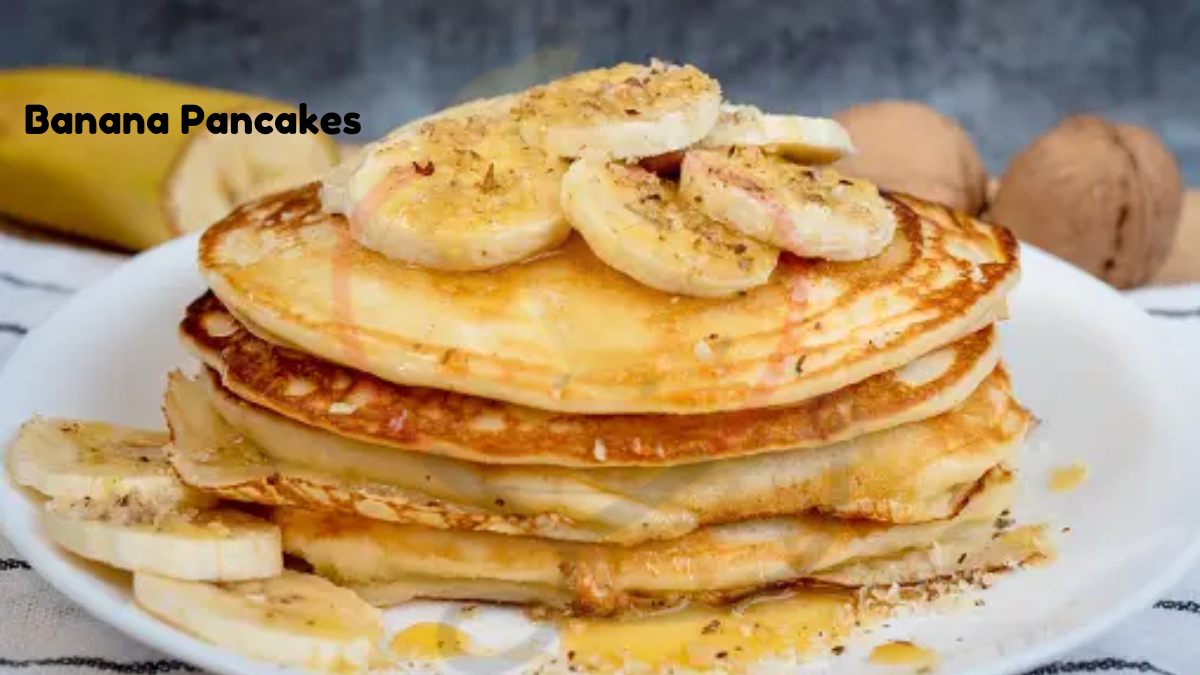
Banana ice Cream
Freeze sliced bananas and blends them until creamy for a guilt-free ice cream alternative.
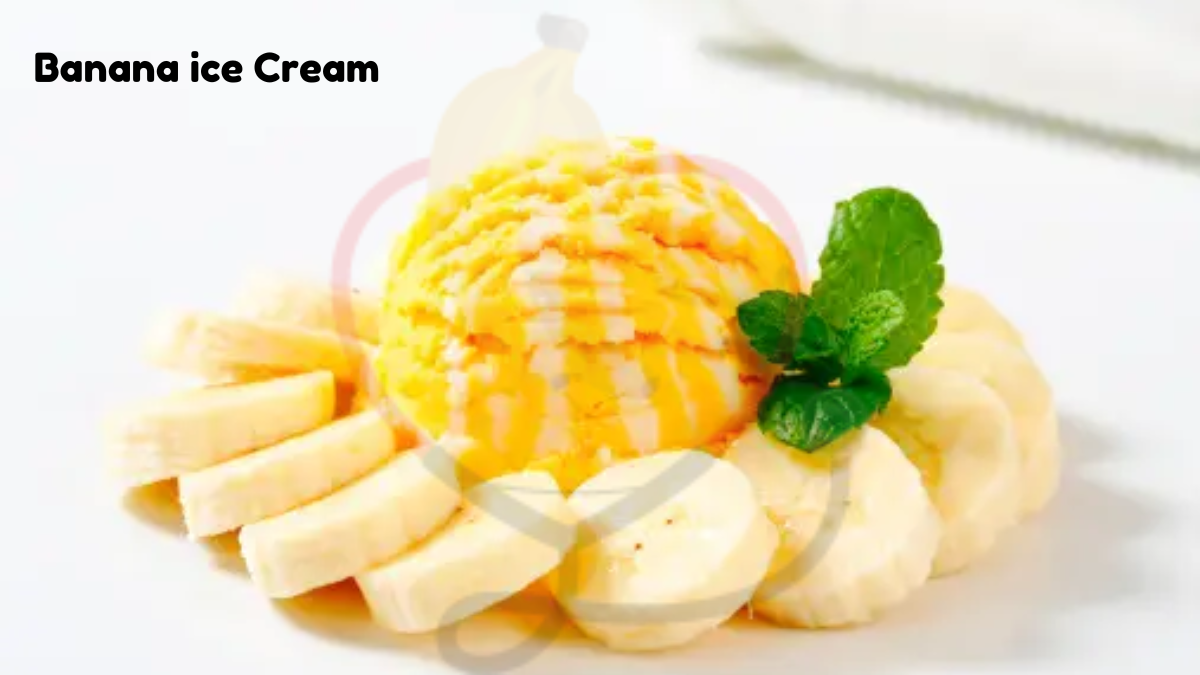
Banana Nut Muffins
Combine mashed bananas with whole wheat flour, nuts, and a hint of honey for a satisfying breakfast treat.

Banana Oat Bars
Mix mashed bananas with oats, almond butter, and dried fruits for energy-boosting snack bars.
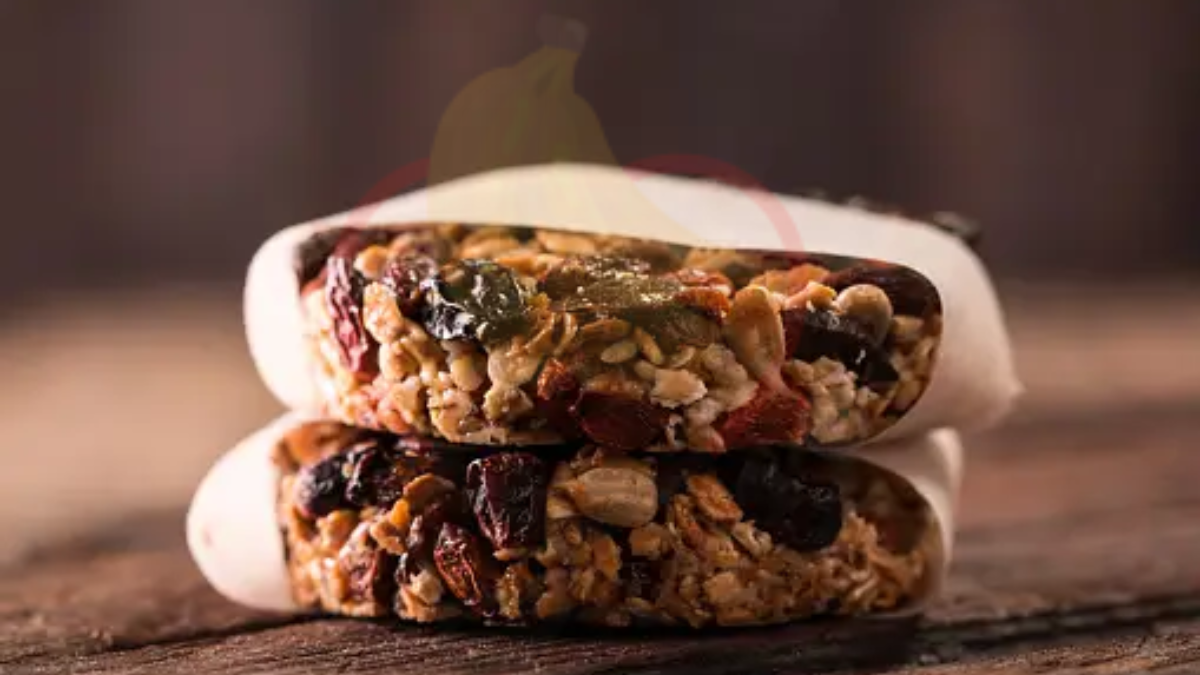
Manganese in bananas is an often-overlooked nutrient that plays a vital role in supporting overall health.
From its antioxidant properties to its involvement in bone health, cognitive function, and energy production, manganese deserves recognition for its contributions to well-being.
So, the next time you enjoy a delicious and nutritious banana, remember the hidden treasure of manganese it offers.
FAQs
Can you get too much manganese from eating bananas?
Eating bananas alone is unlikely to cause manganese toxicity. Manganese toxicity is more commonly associated with excessive intake from supplements or occupational exposure.
Are there any other fruits that are good sources of manganese?
Yes, besides bananas, there are several other fruits that contain significant amounts of manganese. Pineapples, raspberries, blackberries, and blueberries are some excellent choices to incorporate into your diet to boost your manganese intake.
Can manganese supplements replace the need for a balanced diet?
While manganese supplements can be useful for individuals with specific needs or deficiencies, they should not be seen as a substitute for a well-balanced diet. Whole foods provide a variety of essential nutrients that work synergistically to support overall health.
How can I tell if I have a manganese deficiency?
Manganese deficiency is relatively rare, but some signs may include joint pain, bone abnormalities, and changes in hair and skin texture. If you suspect a deficiency, consult a healthcare professional for proper evaluation and guidance.
Can children benefit from consuming manganese-rich foods like bananas?
Yes, children can benefit from consuming manganese-rich foods as part of a balanced diet. Manganese is essential for their growth, bone development, and overall health. However, it is crucial to ensure age-appropriate serving sizes and consult with a pediatrician if you have any concerns.
